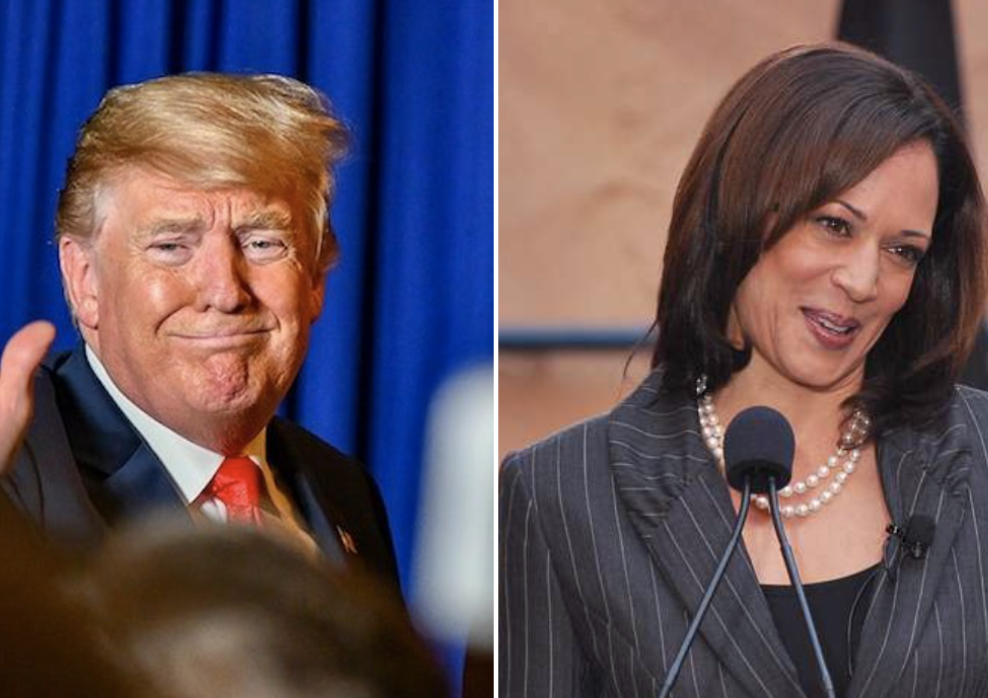Trump Gains Edge Over Harris in Critical Swing State

Vice President Kamala Harris’s so-called “honeymoon” phase appears to be waning, as suggested by a series of recent polls, including one from the pivotal swing state of Pennsylvania.
A recent Emerson College poll, released late last week, shows Trump leading Harris 51% to 49% in Pennsylvania, after accounting for the preferences of undecided voters.
This signals a narrowing of the race compared to last month’s figures, where Trump held a 51% to 45% lead over Harris among those very likely to vote. However, earlier polls from the state had consistently placed Harris in the lead, making Emerson’s latest findings a notable shift.
On key issues like the economy and immigration, Trump continues to hold an advantage over Harris, as his policies have resonated with specific voter demographics. Yet, Harris has shown some improvement in areas where Joe Biden previously struggled.
Since securing the Democratic Party’s presidential nomination, Harris has received widespread media acclaim, but that positive coverage seems to be fading. Just last week, the vice president introduced an anti-price gouging plan, reminiscent of Soviet-era controls, which even drew criticism from her staunchest media allies.
The Washington Post Editorial Board criticized Harris’s plan in an opinion piece published shortly after her announcement.
“Vice President Kamala Harris’s speech Friday was an opportunity to get specific with voters about how a Harris presidency would manage an economy that many feel is not working well for them,” the board commented. “Unfortunately, instead of delivering a substantial plan, she squandered the moment on populist gimmicks.”
“One way to handle it might be to level with voters, telling them that inflation spiked in 2021 mainly because the pandemic snarled supply chains, and that the Federal Reserve’s policies, which the Biden-Harris administration supported, are working to slow it,” the editorial continued. “The vice president instead opted for a less forthright route: Blaming big business.”
CNN economics reporter Elisabeth Buchwald was equally critical in her analysis.
“Food prices have surged by more than 20% under the Biden-Harris administration, leaving many voters eager to stretch their dollars further at the grocery store. On Friday, Vice President Kamala Harris said she has a solution: a federal ban on price gouging across the food industry,” Buchwald reported.
The reporter highlighted Harris’s remark where she vowed to penalize “opportunistic companies that exploit crises and break the rules.”
“There’s just one issue: Harris’s proposal could create more problems than the one it’s trying to solve, some economists say. Gavin Roberts studied anti-price gouging laws some states passed during the pandemic. One of the biggest effects he observed, especially at grocery stores, was that these laws motivated people ‘to go buy goods more than they would if prices had risen,’” Buchwald wrote.
“When prices are high, in most cases, the best policy action in response is actually taking no action,” Roberts, who chairs the economics department at Weber State University, told CNN. He explained that high prices would typically encourage consumers to switch to other products, like choosing a different type of meat when beef prices rise, thereby keeping beef available on the shelves for those willing to pay the premium.
“And while Harris claims her proposal ‘will help the food industry become more competitive,’ Roberts said it would do just the opposite. ‘It’s more likely to maintain that status quo,’ he added, noting that it could deter new competition, which might have otherwise helped reduce prices over time,” Buchwald explained.
“This is not sensible policy, and I think the biggest hope is that it ends up being a lot of rhetoric and no reality,” former Obama administration economist Jason Furman told The New York Times. “There’s no upside here, and there is some downside.”